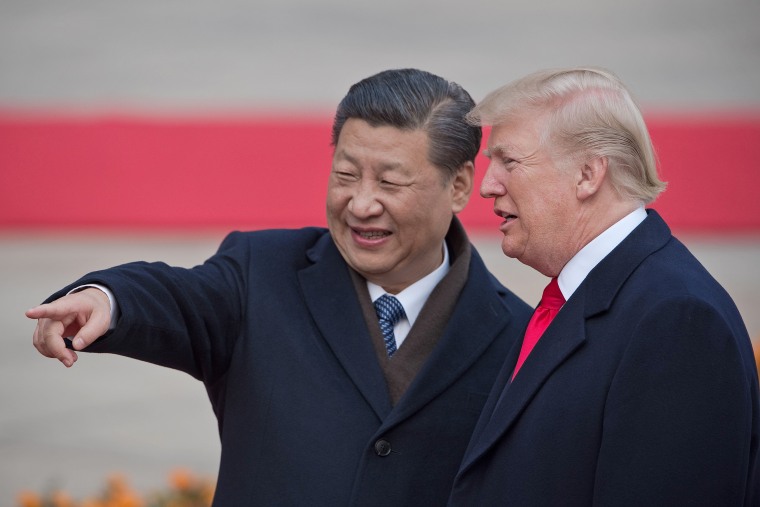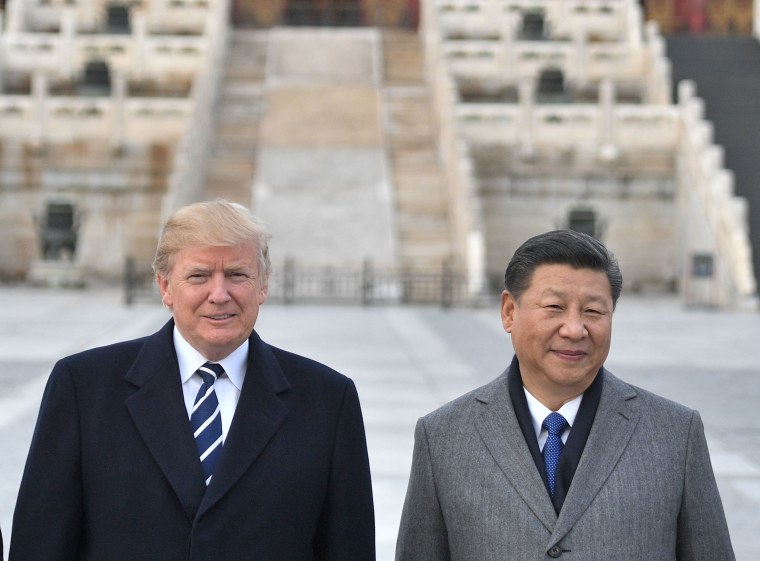HONG KONG — President Donald Trump is again postponing a planned escalation of tariffs on China, a move sure to please American farmers and businesses that have been hurt by a long-running trade war with Beijing.
Tariffs on $200 billion worth of Chinese good were due to rise from 10 percent to 25 percent in March, but Trump said Sunday that progress in a set of negotiations launched from his meeting with President Xi Jinping in Buenos Aires in December led him to forestall the heavier duties.
"As a result of these very productive talks, I will be delaying the U.S. increase in tariffs," he wrote in a tweet. "Assuming both sides make additional progress, we will be planning a Summit for President Xi and myself, at Mar-a-Lago, to conclude an agreement."

Trump pointed to advancements in bilateral talks on a wide range of issues, including trade in agricultural goods, intellectual property protection and technology transfer issues, and the treatment of currency, but he did not announce any concrete concessions on the part of Beijing.
Trump already had delayed the new round of tariffs once, putting off a Jan. 1 start date after he and Xi agreed to negotiate over a variety of issues during a meeting on the sidelines of a G-20 summit in Buenos Aires in December. At that time, Trump said China had promised to buy certain U.S. agricultural products and to list fentanyl as a controlled substance.
But beyond the policy implications of the trade war, there's a political angle for Trump as he heads into his re-election campaign. China's retaliation against American tariffs has hit parts of the country that supported him particularly hard.
Last year — in a move at odds with conservative economic orthodoxy — Trump initiated a subsidy program to aid U.S. farmers trapped in the trade crossfire. Already, that program has pumped out nearly $8 billion in subsidies to farmers to offset their losses. And a group called "Tariffs Hurt the Heartland" estimated that retaliatory Chinese duties cost American businesses $2.7 billion in November 2018 alone.

